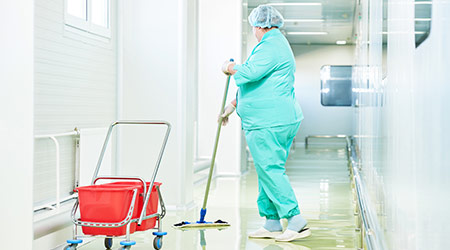
Disinfectants may be helping create superbugs
Research has led to calls for the products - Chlorhexidine and Mupirocin - to be more strictly regulated
March 25, 2019
Recent Posts
 What 'Light' Daily Cleaning of Patient Rooms Misses
What 'Light' Daily Cleaning of Patient Rooms Misses
Most environmental services workers still clean as if they were wiping dust off a countertop, not disrupting a living, structured community.
 Sprinkler Compliance: Navigating Code Mandates, Renovation Triggers and Patient Safety
Sprinkler Compliance: Navigating Code Mandates, Renovation Triggers and Patient Safety
As CMS deadlines approach and renovation projects accelerate, healthcare facility managers must understand how NFPA 101, state fire codes and sprinkler design strategies intersect.
 MUSC Board of Trustees Approves $1.1B South Carolina Cancer Hospital
MUSC Board of Trustees Approves $1.1B South Carolina Cancer Hospital
Research and education are intentionally embedded in the hospital’s design, with dedicated spaces for scientific collaboration, clinical investigation and training.
 Study Outlines Hand Hygiene Guidelines for EVS Staff
Study Outlines Hand Hygiene Guidelines for EVS Staff
Researchers find that current guidelines for hand hygiene don’t include EVS workers and suggest indicators to fill that gap.
 McCarthy Completes $65M Sharp Rees-Stealy Kearny Mesa MOB Modernization
McCarthy Completes $65M Sharp Rees-Stealy Kearny Mesa MOB Modernization
The completed tenant improvement includes approximately 100,000 square feet of improved space across two buildings and represents an investment of $65 million.